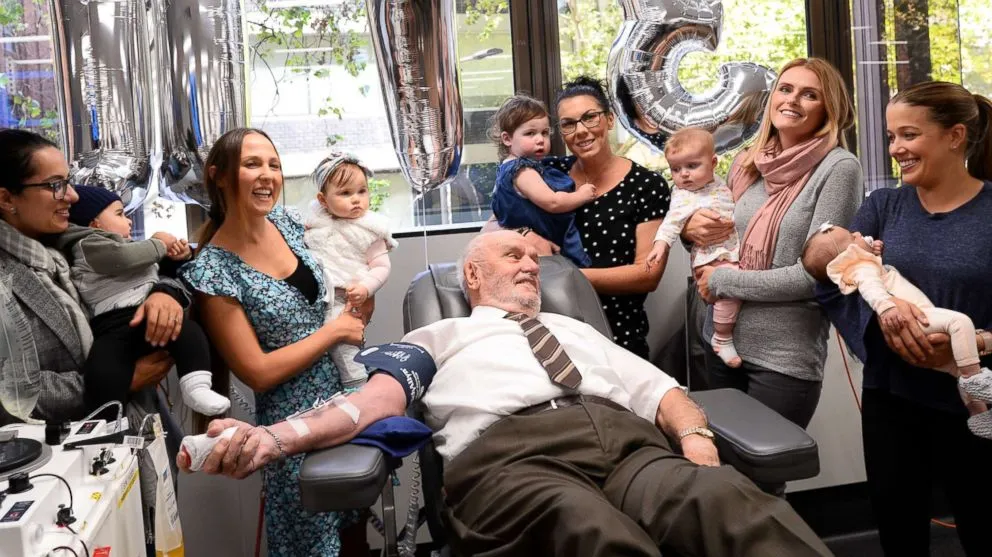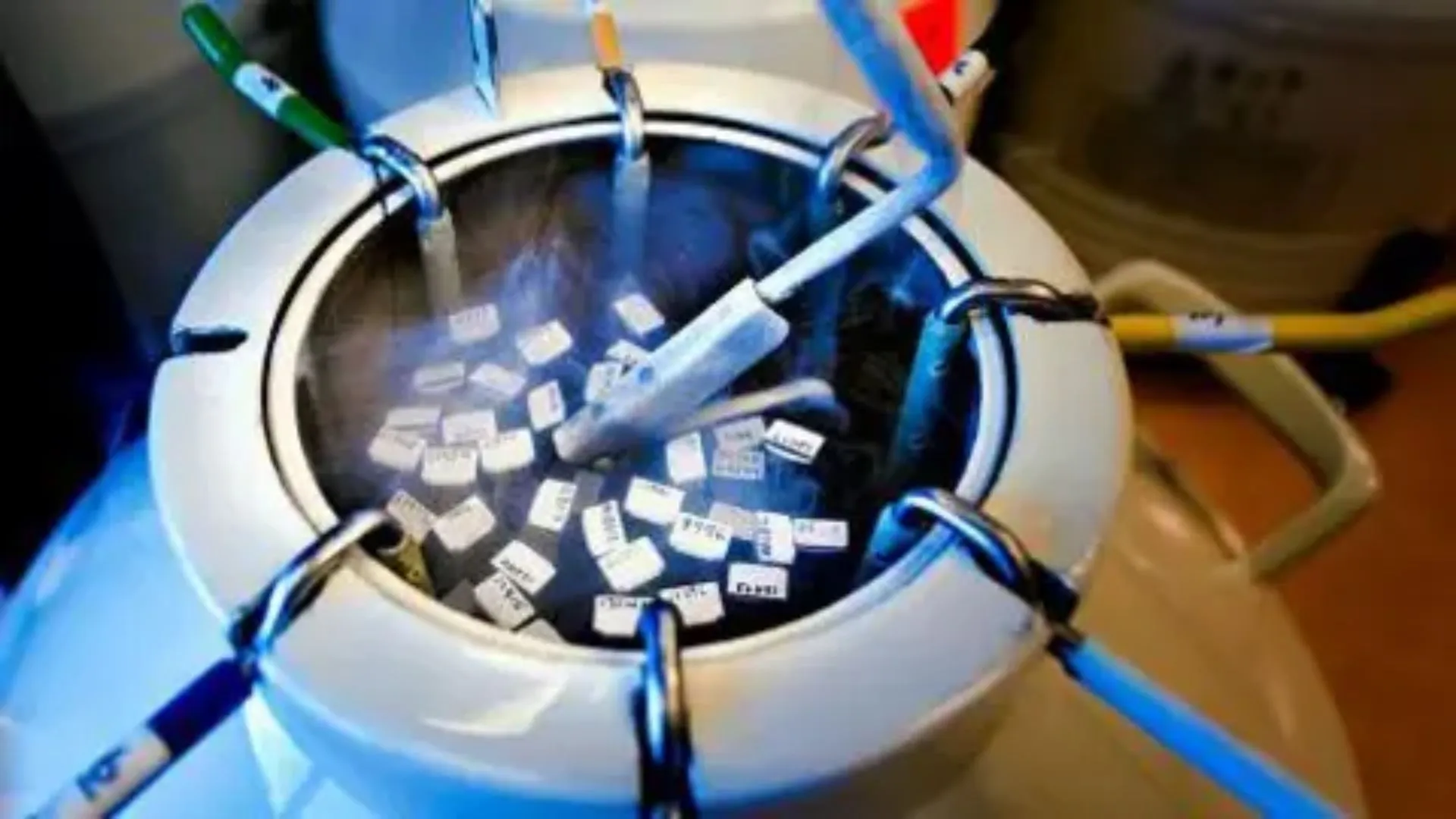James Harrison, affectionately known in Australia as the “man with the golden arm,” passed away on February 17, 2025, at the age of 88. His life was nothing short of extraordinary, defined by an incredible legacy of selflessness and compassion. Harrison’s remarkable contributions to public health, particularly in the field of maternal and infant care, are unparalleled. Over six decades, his plasma donations saved the lives of more than 2.4 million Australian babies, making him a national hero and a figure celebrated globally. His death marked the end of an era, but his impact will continue to reverberate in the world of medical science and humanitarian efforts for generations to come.
Who Was James Harrison?
James Harrison’s story began in 1936 in Australia, but it is his later years that earned him international recognition. His journey as one of the world’s most prolific and impactful blood donors began at the age of 18, when he made his first plasma donation. What set Harrison apart from other blood donors was his blood’s unique property—it contained a rare and vital antibody known as Anti-D, which was to become the cornerstone of a life-saving treatment for pregnant women at risk of haemolytic disease of the fetus and newborn (HDFN).
Harrison’s decision to donate plasma was not taken lightly. At the age of 14, he underwent a complex lung surgery and required intensive care, including numerous blood transfusions. The experience left him deeply moved and determined to give back. Despite his fear of needles, Harrison promised himself he would donate blood as soon as he was eligible. He kept that promise, donating plasma every two weeks for over six decades until his retirement at 81.
In 2005, Harrison held the world record for the most plasma donations, a record that he maintained until it was surpassed by a donor from the United States in 2022. However, his title as the most generous and dedicated blood donor is still etched in history. He was not just a donor—he was a savior to countless newborns and mothers.
The Golden Arm: Harrison’s Unique Contribution
What made Harrison’s blood so invaluable was the presence of the Anti-D antibody, a rare compound found in his plasma that was critical in the treatment of HDFN. This condition occurs when there is an incompatibility between the mother’s blood type and her baby’s, causing the mother’s immune system to attack the baby’s red blood cells. Left untreated, HDFN can lead to severe anemia, heart failure, or even death in newborns. Before the development of the Anti-D treatment, about half of the babies diagnosed with this condition did not survive.
Harrison’s blood was found to contain an unusually high level of this rare antibody, and it was this discovery that set the foundation for the development of the Anti-D vaccine, a groundbreaking medical treatment introduced in the mid-1960s. Anti-D was developed to prevent HDFN by injecting the mother with the antibody, thereby protecting the unborn baby from the potentially fatal effects of the condition.
Australia has fewer than 200 active Anti-D donors, yet their contributions support the treatment of around 45,000 mothers and babies every year. Harrison’s blood became the primary source of the Anti-D antibody for this purpose. In fact, every batch of Anti-D ever produced in Australia has come from his blood.
The Science Behind Harrison’s Blood
The story of how Harrison’s blood became rich in Anti-D remains partly mysterious. However, it is believed that his extensive experience with blood transfusions, particularly at the age of 14 when he required 13 units of blood to survive his lung surgery, played a role in the development of his rare antibody. Some speculate that the blood transfusions may have contributed to his immune system’s unique response, producing the potent Anti-D antibody.
Despite this, Harrison’s own understanding of the significance of his blood was humble. He never sought recognition or accolades for his actions, stating that he simply wanted to help. His devotion to the cause remained unwavering, even after the loss of his wife, Barbara, who was also a regular blood donor.
A Lifetime of Giving: Harrison’s Legacy
Harrison’s dedication to plasma donation is unparalleled. Over his lifetime, he made 1,173 plasma donations, 1,163 of which came from his right arm, with just 10 from his left. He never missed a single donation appointment, keeping a regular schedule of donating every two weeks for more than six decades. His commitment was a testament to his deep sense of compassion and selflessness.
In 1999, Harrison was awarded the Medal of the Order of Australia, one of the nation’s highest honors, in recognition of his tireless service to the Australian Red Cross Lifeblood and the Anti-D program. This was just one of the many acknowledgments he received throughout his life for his extraordinary contributions.
The impact of Harrison’s blood donations on the reduction of HDFN-related deaths in Australia is staggering. In the past, the mortality rate for babies suffering from HDFN was disturbingly high. However, thanks to the availability of Anti-D treatment, the mortality rate has plummeted over 100-fold, to approximately four deaths per year in Australia. This drastic decline in infant deaths is a direct result of Harrison’s life-saving donations.
Harrison’s generosity left a lasting legacy that extended beyond the medical world. His daughter, Tracey Mellowship, often spoke of him as a compassionate and humorous man who touched the lives of everyone he met. She herself is an Anti-D recipient, and she credits her father’s donations for the very existence of her family. Through his contributions, Harrison indirectly helped create countless families, offering them the gift of life.
The “James in a Jar” Project
In recognition of Harrison’s profound contributions, researchers at the Walter and Eliza Hall Institute of Medical Research (WEHI) in Melbourne have launched the “James in a Jar” project. This initiative aims to replicate the Anti-D antibody in a laboratory setting by using blood and immune cells from Harrison and other donors. The goal is to produce and grow the antibody in vitro, which could one day help prevent HDFN and provide essential treatment for pregnant women not only in Australia but around the world.
This project highlights the ongoing impact of Harrison’s blood and the possibility of advancing medical science to further improve the treatment of HDFN and other blood-related conditions. It is a fitting tribute to a man whose blood saved millions of lives.
James Harrison’s Final Days and the Future of His Legacy
James Harrison passed away peacefully in his sleep at a nursing home in New South Wales, leaving behind a legacy that will forever be remembered. Despite his passing, his influence continues to be felt in the lives of the mothers and babies he helped save, as well as in the ongoing research to improve Anti-D treatments.
Today, Harrison’s story is celebrated not only in Australia but worldwide. He is remembered as a humanitarian, a pioneer in medical science, and a symbol of altruism. His legacy is a powerful reminder of the profound impact one individual can have on the world, and it serves as an inspiration for future generations to follow in his footsteps.
James Harrison’s life was a testament to the power of giving. Through his simple yet extraordinary acts of kindness, he became a hero whose contributions will continue to save lives for years to come. The “man with the golden arm” may no longer be with us, but his legacy will endure, inspiring countless others to give and make the world a better place.
James Harrison’s death marks the end of an era in blood donation and medical philanthropy. His contributions saved over 2 million babies, and his legacy will continue through the ongoing work of researchers and medical professionals who strive to replicate his life-saving antibody. James Harrison’s story is a powerful reminder of the profound difference one person can make, and his name will forever be synonymous with selfless giving and the preservation of life.























